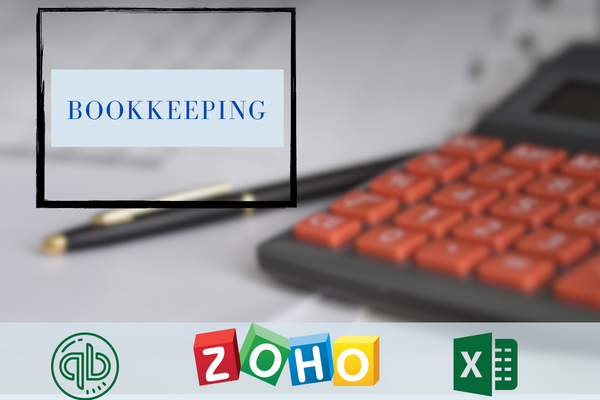Each QuickBooks function serves a specific purpose and provides tools and functionalities to perform related tasks efficiently. For example, the bookkeeping and accounting function allows users to track income and expenses, reconcile bank accounts, and generate financial statements. The invoicing and billing function enables users to create and send professional invoices to clients, track payments, and manage cash flow effectively.
Which QuickBooks Function Would Be Most Useful?
QuickBooks, developed by Intuit, is one of the leading accounting software solutions available in the market today. It offers a wide range of functions and features to streamline bookkeeping, invoicing, financial reporting, payroll management, inventory control, tax preparation, and more. With such versatility, determining the most useful QuickBooks function depends on various factors specific to each business. In this article, we will explore the different functions of QuickBooks and identify which one might be most beneficial for your needs.
Understanding QuickBooks Functions
Bookkeeping and Accounting: QuickBooks excels at automating bookkeeping and accounting tasks. It allows you to track income and expenses, manage bank and credit card transactions, reconcile accounts, and generate financial statements.
Invoicing and Billing: With QuickBooks, you can easily create and send professional invoices to your clients. It enables you to customize invoices, track payments, and send reminders for outstanding payments.
Financial Reporting: QuickBooks provides robust reporting capabilities, allowing you to generate various financial reports, such as profit and loss statements, balance sheets, cash flow statements, and tax reports. These reports offer valuable insights into your business’s financial health.
Payroll Management: For businesses with employees, QuickBooks offers payroll management features. It helps calculate and track employee salaries, deductions, and tax withholdings and generates pay stubs.
Inventory Management: QuickBooks allows you to efficiently track and manage your inventory. You can monitor stock levels, set reorder points, track sales, and generate reports to optimize inventory control.
Tax Preparation: QuickBooks simplifies tax preparation by organizing your financial data and generating accurate tax reports. It helps you stay compliant with tax regulations and reduces the hassle of tax filing.
Determining the Most Useful QuickBooks Function
The most useful QuickBooks function varies from business to business based on several factors. Consider the following aspects to determine which function will benefit you the most:
Business Type and Size: Different business types have unique requirements. A retail business may prioritize inventory management, while a service-based business may focus on invoicing and billing.
Industry-specific Requirements: Certain industries have specific compliance and reporting needs. Nonprofit organizations may require specialized features for fund accounting, while e-commerce businesses may require integration with online sales platforms.
Business Goals and Objectives: Identify your business goals and objectives to determine which QuickBooks function aligns with your long-term vision. If growth is a priority, payroll management and financial reporting features may be crucial.
Popular QuickBooks Functions for Different Needs
Small Business Owners: Small business owners can benefit from QuickBooks’ comprehensive suite of functions. The invoicing and billing feature helps them manage cash flow, while financial reporting assists in monitoring business performance.
Freelancers and Self-Employed Individuals: For freelancers and self-employed professionals, the invoicing and expense tracking functions are particularly useful. They can easily generate invoices, track payments, and categorize business expenses.
Nonprofit Organizations: QuickBooks offers features tailored for nonprofit organizations. It enables them to manage grants and donations, generate contribution reports, and track expenses based on funding sources.
Retail and E-commerce Businesses: Inventory management is crucial for retail and e-commerce businesses. QuickBooks helps them track stock levels, manage purchase orders, and analyze sales trends.
Service-Based Businesses: Service-based businesses can benefit from QuickBooks’ time-tracking and project management features. They can accurately bill clients based on hours worked and monitor project profitability.
Factors to Consider When Choosing a QuickBooks Function
When selecting the most useful QuickBooks function for your business, consider the following factors:
Ease of Use: Ensure that the chosen function is intuitive and user-friendly, allowing you to navigate through the software effortlessly.
Integration with Other Tools: Check if the function integrates with other tools you use, such as payment gateways, CRM systems, or e-commerce platforms.
Cost and Pricing Plans: Evaluate the pricing plans and determine if they align with your budget and anticipated growth.
Customer Support and Training: Consider the availability of customer support and training resources to help you maximize the benefits of the chosen function.
Advanced Features and Customization Options: Assess whether the function offers advanced features and customization options to cater to your specific business needs.
What is QuickBooks & how does it work?
QuickBooks is an accounting software developed by Intuit that helps businesses manage their financial transactions, track income, and expenses, generate financial reports, and streamline various accounting processes. It is widely used by small and medium-sized businesses to simplify their bookkeeping, invoicing, payroll, and tax-related tasks.
QuickBooks works by providing a user-friendly interface and a range of features to handle different aspects of financial management. Here’s a breakdown of how QuickBooks works:
Setting Up: After installing QuickBooks on your computer or accessing it through the cloud-based version, you’ll need to set up your company profile. This involves entering basic information about your business, such as company name, address, fiscal year, and industry type.
Chart of Accounts: QuickBooks utilizes a chart of accounts, which is a list of different categories to organize your financial transactions. It includes accounts for assets, liabilities, equity, income, and expenses. You can customize the chart of accounts based on your specific business needs.
Recording Transactions: QuickBooks allows you to record various types of financial transactions. You can enter income from sales, record expenses for purchases or services, track bank and credit card transactions, and reconcile accounts to ensure accuracy.
Invoicing and Billing: With QuickBooks, you can create professional invoices for your customers. You can customize the invoices with your branding, add line items, and calculate taxes. QuickBooks also track outstanding payments and sends reminders to clients for overdue invoices.
Financial Reporting: QuickBooks provides a range of pre-built reports that offer insights into your business’s financial performance. These reports include profit and loss statements, balance sheets, cash flow statements, and more. You can also customize reports to focus on specific metrics and time periods.
Payroll Management: QuickBooks offers payroll features to help manage employee salaries, deductions, and tax withholdings. It enables you to calculate payroll, generate pay stubs and facilitates direct deposit. It also helps with filing payroll taxes and provides tax forms.
Inventory Management: QuickBooks provides tools for tracking and managing inventory. You can create product listings, set reorder points, and monitor stock levels. QuickBooks also enables you to generate reports to analyze inventory turnover and identify trends.
Tax Preparation: QuickBooks simplifies tax preparation by organizing financial data and generating tax reports. It helps calculate tax liabilities and ensures compliance with tax regulations. It can generate reports required for filing income tax returns.
Integration and Add-Ons: QuickBooks integrates with various third-party applications, such as payment processors, CRM systems, e-commerce platforms, and time-tracking tools. This allows you to streamline workflows and automate data syncing between different systems.
Cloud-Based Access: QuickBooks offers cloud-based versions that allow you to access your financial data securely from any device with an internet connection. Cloud-based access enables collaboration with team members and accountants in real time.
QuickBooks aims to simplify financial management for businesses of all sizes by providing a user-friendly interface, automation features, and comprehensive tools for bookkeeping, invoicing, payroll, reporting, and more. It helps businesses save time, reduce errors, and gain better control over their finances.
FAQs
Can QuickBooks handle multiple currencies?
Yes, QuickBooks supports multiple currencies, allowing you to manage transactions and generate reports in different currencies.
Is QuickBooks suitable for large enterprises?
QuickBooks offers editions designed specifically for small and medium-sized businesses. While it can handle the needs of many large enterprises, some may require more advanced enterprise solutions.
How secure is the data in QuickBooks?
QuickBooks prioritizes data security and employs encryption protocols and secure servers to protect your information. Additionally, regular data backups ensure data integrity.
Can QuickBooks generate tax reports?
Yes, QuickBooks provides built-in tax reporting features that allow you to generate tax reports and simplify the tax filing process.
Does QuickBooks have mobile apps?
Yes, QuickBooks offers mobile apps for iOS and Android devices, enabling you to access and manage your business finances on the go.



